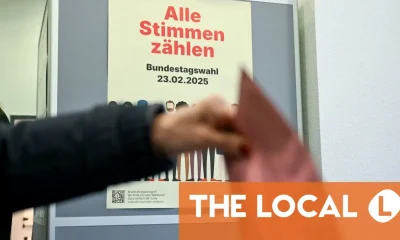The borderless Schengen area guarantees free movement to tens of millions of EU citizens, residents and visitors.
It recently celebrated its 40th anniversary, and after originally starting with just five countries signing a convention pledging to “gradually abolish” internal borders checks and allow people to travel around freely, today the Schengen area includes 25 of the 27 EU member states and the four countries of the European Free Trade Association (Iceland, Liechtenstein, Norway and Switzerland).
According to the EU Council website, the Schengen area covers over 4.5 million square kilometres with a total population of almost 450 million people. Every day around 3.5 million people cross the Schengen internal borders for work, study or visits, and almost 1.7 million people reside in one Schengen country while working in another.
Under the Schengen Borders Code, which sets the rules governing the Schengen area, internal border checks can be temporarily restored where there is a “serious threat to public policy or internal security”, from the organisation of a major sport event to a terrorist attack.
These checks should be a “last resort” measure, should be limited to the period “strictly necessary” to respond to the threat and not last more than 6 months. In exceptional circumstances, internal border controls can be reintroduced for a maximum of two years.
Several members of the bloc have reintroduced temporary border controls in recent years. The full list of countries that currently have controls in place is available here.
READ ALSO: Schengen hits 40 – What problems lie ahead for Europe’s border-free zone?
Advertisement
According to European Commission information, the following European countries have reintroduced temporary border checks for the following dates:
- Spain – 27/06/2025 – 05/07/2025 – IV United National International Conference on Financing for Development in Sevilla (30 June – 3 July 2025); land borders with France and Portugal, internal air borders of Alicante, Almería, Barcelona, Bilbao, Girona, Granada, Madrid, Málaga, Murcia, Sevilla and Valencia; internal maritime borders of Barcelona, Málaga and Palma de Mallorca.
- Italy – 19/06/2025 – 18/12/2025 – Continued threat of terrorist infiltrations into migratory flows along the Western Balkan route, ongoing crises in the Middle East and Ukraine, high level of irregular migration including a strong presence of criminal smuggling and trafficking networks, and heightened security risks associated with the Universal Jubilee of the Catholic Church; land borders with Slovenia.
- Italy – 19/12/2024 – 18/06/2025 – Continued threat of terrorist infiltrations into migratory flows along the Mediterranean route and the Balkan route, ongoing crises in Eastern Europe and the Middle East, increasing migratory pressures and the risk of terrorist infiltration, risk of violent actions against Israeli citizens and terrorist activity, and heightened security risks associated with the Universal Jubilee of the Catholic Church; land borders with Slovenia.
- Austria – 12/05/2025 – 11/11/2025 – Threats associated with the continued high levels of irregular migration and migrant smuggling across Austria’s southern borders, as well as the strain on the asylum reception system and basic services, Russia’s ongoing war of aggression against Ukraine and the security situation in the Middle East, intensifying the threat posed by Islamist extremism and terrorism; land borders with Hungary and Slovenia.
- Austria – 16/04/2025 – 15/10/2025 – Threats associated with irregular migration, such as via the Balkan routes (including expected migratory pressure), as well as the strain on the asylum reception system and basic services, Russia’s ongoing war of aggression against Ukraine, and the security situation in the Middle East aggravated by terrorist groups; land borders with Slovakia and Czechia.
Advertisement
- Denmark – 12/05/2025 – 11/11/2025 – Serious threats to public policy and internal security posed by possible sabotage actions from Russia, as well as continuous terrorism-related events and organised crime, notably, tied to the Israeli-Hamas conflict and driven by radicalisation from groups such as Islamic State and Al-Qaida. These threats include potential attacks on Jewish and Israeli targets; land and sea borders with Germany but may extend to all internal borders.
- Norway – 12/05/2025 – 11/11/2025 – General threat aimed at the energy sector, threats of sabotage posed by the Russian intelligence service, as well as to increase infrastructure protection; ports with ferry connections to the Schengen area
- Sweden – 12/05/2025 – 11/11/2025 – Serious threats to public policy and internal security arise from organised cross-border crime and terrorism, highlighted by attacks involving military-grade explosives against foreign institutions and the public, including the involvement of foreign state actors leveraging criminal gangs, coupled with persistent threats from violent Islamist groups and individuals; all internal borders (land, air, and sea) and land borders with Denmark.
Advertisement
- France – 01/05/2025 – 31/10/2025 – Serious threats to public policy, public order, and internal security posed by persistent jihadist threats, a rise in antisemitic attacks, the growing criminal networks facilitating irregular migration and smuggling, and irregular migration flows towards the Franco-British border that risk infiltration by radicalised individuals, as well as the irregular crossings on the Channel and North Sea borders, along with rising violence among migrants, particularly in northern coastal areas such as Dunkirk and Calais, leading to tense and perilous situations for both migrants and law enforcement; all internal borders (land, air, and sea) with Belgium, Germany, Luxembourg, the Swiss Confederation, Spain, and Italy.
- Germany – 16/03/2025 – 15/09/2025 – Serious threats to public security and order posed by continued high levels of irregular migration and migrant smuggling, and the strain on the asylum reception system. The impact of the global security situation (including Russia’s war of aggression against Ukraine and the situation in the Middle East) on security and migration; land borders with France, Luxembourg, Belgium, the Netherlands, Denmark, Austria, Switzerland, Czechia, and Poland.
READ ALSO: How long can Germany keep its border checks in place?
Advertisement
- Slovenia – 22/06/2025 – 21/12/2025 – Serious threats to public policy and internal security posed by a high level of terrorist threats and organised crime, including human smuggling and arms trafficking, the risk of terrorist infiltrations into migratory flows via the Western Balkans, hybrid threats from the Russian Federation and Belarus, as well as instability in the EU’s neighbourhood, including Russia’s ongoing aggression against Ukraine and instability following the fall of Assad’s regime in Syria; land borders with Croatia and Hungary.
- The Netherlands – 09/06/2025 – 08/12/2025 – Serious threat to public policy caused by high levels of asylum applications, irregular migration, migrant smuggling, and secondary movements, leading to an overburdening of the migration system in general and the asylum system in particular, as well as pressure on public services, including housing, health care and education; land and air borders with Belgium and Germany.
- Bulgaria – 01/01/2025 – 30/06/2025 – Security risks related to illegal migration, including smuggling activities, as well as migratory pressure caused by ongoing crises in the Middle East and Africa, particularly in Syria, Afghanistan, and Gaza/Lebanon; land borders with Romania.
- Slovenia – 22/12/2024 – 21/06/2025 – Serious threats to public policy and internal security posed by continuous terrorism-related events and organised crime, including smuggling and arms trafficking, the risk of terrorist infiltrations into migratory flows via the Western Balkans, and radicalised Islamists potentially entering European cities during the holiday season, as well as hybrid threats from the Russian Federation, Russia’s ongoing aggression in Ukraine, Russian nationals attempting to illegally enter Slovenia; land borders with Croatia and Hungary.





























